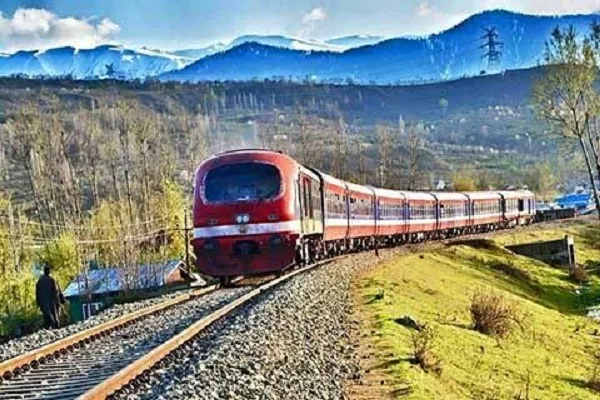The Kashmir Valley has long been known for its scenic beauty, but it has faced significant transportation challenges due to its difficult mountainous terrain. To address these challenges and foster economic development, The Indian Union Territory of Jammu and Kashmir is witnessing a transformative phase in its infrastructure development, particularly in the realm of railway connectivity. Several ambitious railway projects are currently underway, aiming to revolutionize transportation and tourism in the region. This ambitious railway project, which aims to create a rail link between the Kashmir Valley and the Indian railway network, is one of the most complex and strategically important infrastructure projects in the region. This project will significantly improve the transportation infrastructure in Jammu and Kashmir. The aim is to connect the Kashmir Valley with the Indian mainland through a broad-gauge rail line. The project has been under development for several years, with the primary aim of improving connectivity, boosting the regional economy, and enhancing the strategic mobility of the Indian Armed Forces.
Kashmir is currently witnessing significant railway development, particularly with the Udhampur-Srinagar-Baramulla Rail Link project, the major part of this project is the development of Udhampur-Srinagar-Baramulla Rail Link which spans to 272 km and the cost of the project is Rs 41,119 crore. This portion of the railway will connect the region to the rest of India, overcoming major geographical and technical obstacles such as the mountainous terrain, deep gorges, and rivers that must be crossed. A significant milestone in Indian railway engineering, the Udhampur-Srinagar-Baramulla Rail Link is a 272-kilometer-long railway line connecting Udhampur in Jammu to Baramulla in Kashmir. Notable features include the world’s highest railway bridge, the Chenab Bridge, and the longest railway tunnel in India, the Pir Panjal Tunnel. The project is set to significantly reduce travel time between Jammu and Kashmir, boosting tourism and trade. This 39-kilometer extension of the existing railway line aims to connect the Kupwara district with the railway network. The project will open up new opportunities for economic growth and tourism in the region. This proposed railway line will connect Anantnag with the picturesque hill station of Pahalgam. The project is expected to boost tourism to Pahalgam and other nearby destinations. Train connectivity between Delhi and Srinagar is set to improve significantly with the introduction of the Vande Bharat sleeper train, scheduled to launch in January 2025. This new service will cover a distance of approximately 800 Km in less than 13 hours, providing a direct overnight journey for passengers. The train is expected to depart from New Delhi at 7 PM and arrive in Srinagar by 8 AM the next day, making it an ideal option for passengers looking to maximize their time. The introduction of this train service is expected to boost tourism and strengthen economic ties between Kashmir and the rest of India, making travel more accessible and comfortable.
Strategic Importance. The strategic importance of the railway project cannot be overstated. The rail link will enhance the mobility of both civilians and military personnel. For decades, Kashmir has been relatively isolated due to its location in the northernmost part of India, and transportation has been heavily reliant on road and air routes.
Job Creation.The ongoing construction has already created thousands of jobs for locals. From construction workers to engineers and technicians, the railway project is a significant source of employment. Furthermore, once the rail line becomes operational, there will be opportunities for commercial growth, hospitality services, and logistics, all of which could further reduce unemployment in the region.
Enhanced Connectivity. These railway projects will significantly improve connectivity within Kashmir and between Kashmir and other parts of India.
Economic Growth.The improved connectivity will facilitate the movement of goods and people, boosting economic activities in the region.
Tourism Development. The railway network will make it easier for tourists to access various destinations in Kashmir, promoting tourism and generating revenue.
Social Development. The railway projects are expected to create employment opportunities and improve the overall quality of life for the people of Kashmir.
The ongoing Railway Projects in Kashmir are an engineering marvel, overcoming significant geographical and technical challenges. When completed, it will not only transform transportation in the region but also improve economic, social, and strategic benefits for the region. With considerable progress being made, the rail project is expected to further strengthen the connectivity of Kashmir with the rest of India, while also providing a much-needed boost to its economy and tourism industry.


